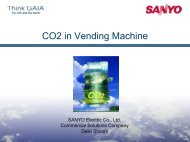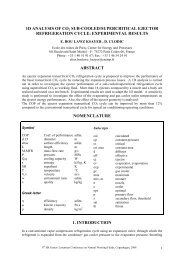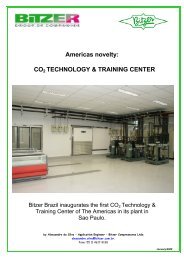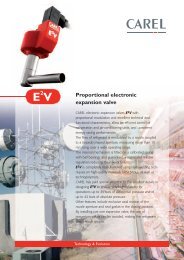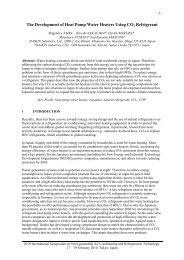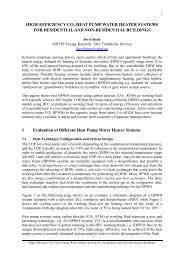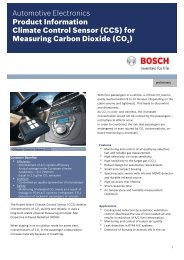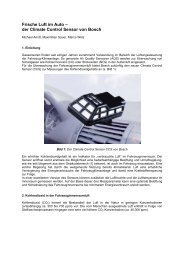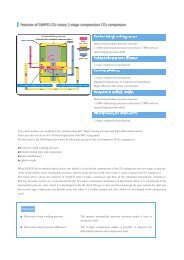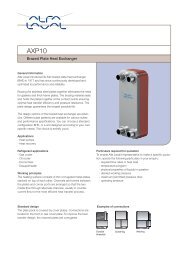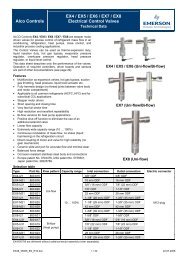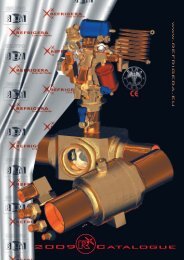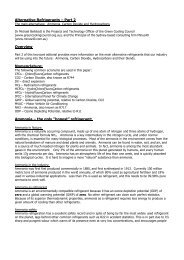TABLE OF CONTENTS
TABLE OF CONTENTS
TABLE OF CONTENTS
You also want an ePaper? Increase the reach of your titles
YUMPU automatically turns print PDFs into web optimized ePapers that Google loves.
Carrier Corporation business case for green competitiveness<br />
Introduction<br />
In close cooperation with the largest food retail customers, Carrier Commercial<br />
Refrigeration has accrued sound CO 2<br />
refrigeration technology experience with the<br />
launch of its innovative CO 2<br />
OLtec TM refrigeration system, which has more than 370<br />
transcritical installations covering all retail store formats. Carrier’s engineering team<br />
has accumulated an invaluable quantity of critical data positioning CO 2<br />
OLtec as the<br />
leading CO 2<br />
transcritical refrigeration system based on energy efficiency, reliability and<br />
sustainability.<br />
In Denmark and Switzerland the refrigerant CO 2<br />
has become a technical standard for<br />
medium and low temperature refrigeration.<br />
Carrier has the right refrigerant solution for every application, but not every application<br />
will use the same refrigerant.<br />
About the company<br />
Carrier Corp., a unit of United Technologies Corp.<br />
(NYSE:UTX), is the world’s leader in high technology<br />
heating, air-conditioning and refrigeration solutions.<br />
Carrier experts provide sustainable solutions,<br />
integrating energy efficient products, controls &<br />
services for residential, commercial, retail, transport<br />
and foodservice customers.<br />
More information at:<br />
www.carrier.com<br />
www.carrier-refrigeration.com<br />
Contact Information<br />
Lothar Serwas<br />
Lothar.Serwas@carrier.utc.com<br />
About the System<br />
CO 2<br />
OLtec provides both low temperature and medium temperature refrigeration<br />
solutions for all retail shop formats. The total impact of a refrigeration system in terms<br />
of greenhouse gas emissions, also called TEWI (Total Equivalent Warming Impact), is<br />
derived from the indirect emissions (energy consumption) and the direct emissions<br />
(refrigerant leakages) over the life-cycle of the refrigeration system.<br />
76



